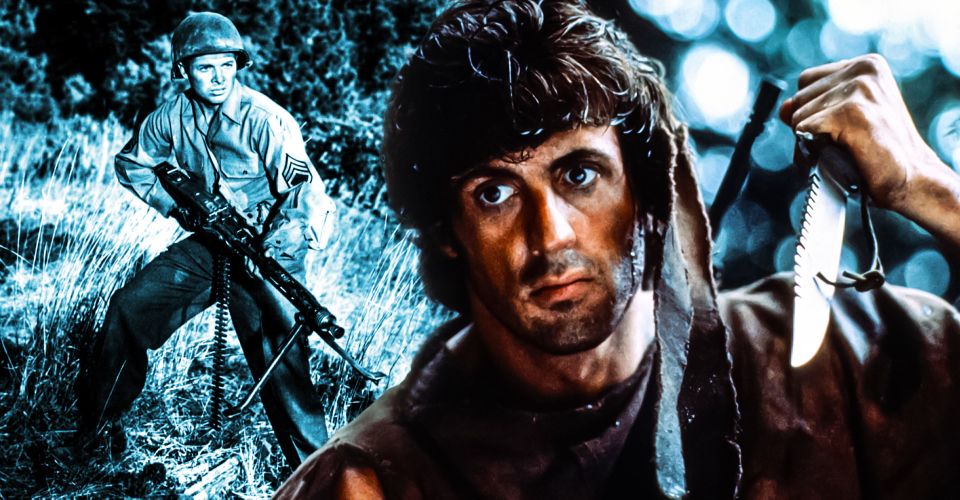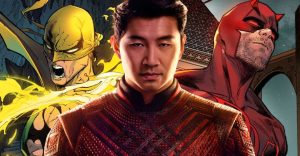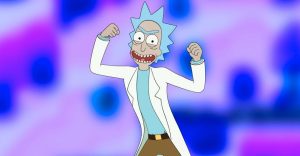The Real-Life Soldier & Actor Who Inspired Stallone’s Rambo

Audie Murphy is the soldier and actor who inspired the creation of First Blood’s Rambo. Sylvester Stallone was far from the first choice to play Rambo in 1982’s First Blood, an adaptation of author David Morrell’s novel. The book saw a Vietnam vet with severe PTSD launch a bloody war on a small town when he’s harassed and bullied by the local sheriff. The Rambo featured in Morrell’s First Blood had no issue killing those he saw as enemies, but when Stallone signed on, he felt audiences would have more sympathy for the character if these elements were removed.
First Blood gave Stallone one of his first major hits outside of the Rocky movie franchise. Rambo: First Blood Part II and Rambo III – which has an apt Guinness world record – would turn the soldier into the ultimate ’80s action hero, with the muscle-bound Stallone often single-handedly taking on armies with knives, exploding arrows and heavy machine guns. Stallone would regret this approach in later years, feeling these entries glamorized war. With 2008’s Rambo, he set to portray war in all its ugliness, with the film featuring scenes of unflinching violence and brutality. The actor seemingly hung up the headband following Rambo: Last Blood, where the former soldier takes on a cartel.
Despite claiming 2019’s critically lambasted Last Blood will be his final outing in the role, Sylvester Stallone does have an interesting Rambo 6 concept in mind. Some of the feats of heroism featured in the Rambo movies may seem to stretch credulity, but in conceiving the character, author Morrell based Rambo on the most highly decorated soldier of World War 2, Audie Murphy, who performed some equally unbelievable feats. Born in Texas in 1925, Murphy grew up in a poor family and became an expert marksman thanks to hunting small game to help feed his siblings. He later enlisted in the Army following the attack on Pearl Harbor, lying about his age so he could join up.

Audie Murphy’s war record has since become legendary, with his service covering nine campaigns. Two famous events from his service include an ambush during Operation Dragoon in southern France in 1944, where his friend Lattie Tipton was killed by German soldiers and Murphy proceeded to single-handedly advance on their position. Within an hour, he killed eight, wounded two and captured the rest. Later in France’s Colmar Pocket, Lieutenant Murphy climbed on a destroyed, flaming tank and manned the machine gun, holding back an entire German infantry on his own while calling in air support. This forced the Germans to retreat, and the wounded Murphy then led his men to pursue the Germans, and he was later awarded the Medal of Honor for his actions; he was 20 at the time.
Audie Murphy later penned a book on his experiences called To Hell And Back, and also starred in the movie adaptation. Murphy’s post-war life inspired First Blood’s Rambo – which Tarantino has an interest in remaking – in that he was one of the first soldiers to break a taboo of the era and speak openly about his post-traumatic stress disorder, which was better known as “shellshock” at the time. Murphy’s PTSD left him with intense nightmares and depression, and he slept with a loaded gun under his pillow. Morrell based both Rambo’s impressive military record and struggle to readjust to civilian life on Audie Murphy, who was plagued by guilt about his actions in WW2. Murphy died in 1971, aged 45, in a private plane crash alongside five other passengers.
About The Author


















